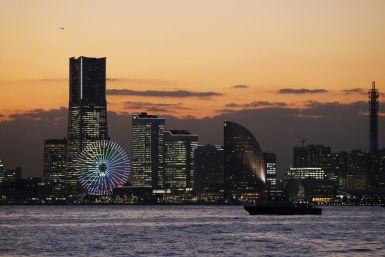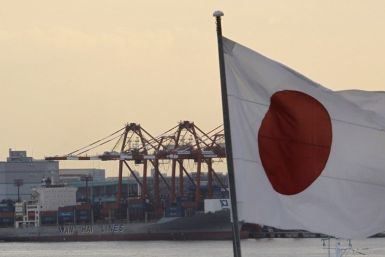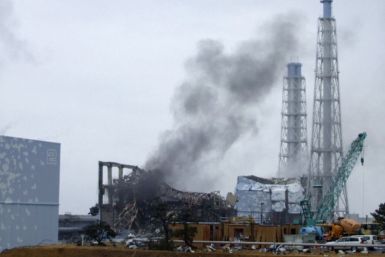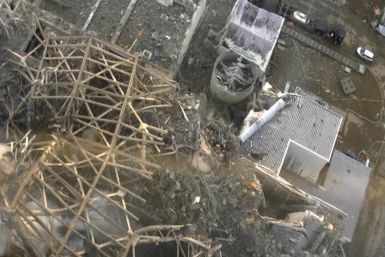Japan's exports fell in March from a year earlier at a faster pace than economists expected, in a sign that shipments will continue to weaken and hurt economic growth after last month's earthquake and tsunami sparked a nuclear crisis and disrupted supply chains for many manufacturers.
Cellphone maker Sony Ericsson is suffering component shortages following the Japanese earthquake and has roped in its bigger parents to give it more muscle in the fight for supplies with bigger rivals.
Toshiba Corp said on Tuesday it likely fell short of its operating profit estimate for the past business year by 4 percent after last month's massive earthquake and tsunami affected operations at some of its plants.
Toshiba Corp said it likely fell short of its operating profit forecast for the past business year by 4 percent, citing the effects of the March 11 quake and tsunami, which affected operations at some of its plants.
Dutch chip equipment maker ASML, a bellwether for the European tech sector, said some customers were holding back on confirming orders because the Japan quake had disrupted their supply chain.
Japan's government has downgraded its assessment of the economy for the first time in six months to reflect last month's devastating earthquake and tsunami, while wholesale prices rose at the fastest pace in more than two years in an ominous sign for company profit margins.
Japanese Economics Minister Kaoru Yosano said on Wednesday that the effects of last month's devastating earthquake and tsunami would be relatively short-lived, with the economy expected to recover toward the end of the year.
The impact of last month's earthquake in Japan on the $214 billion cellphone industry will be under the spotlight when the world's top phonemakers report their quarterly earnings from next week.
Local travel agencies are reporting of tourism to have started gaining momentum in the country, a month after the massive magnitude 9.0 earthquake, which triggered the tsunami and nuclear crisis in Japan.
Another 7.1 magnitude earthquake hit east and northeast Japan near Honshu on Monday, exactly a month after the the deadly, massive magnitude 9.0 earthquake, which triggered the tsunami and nuclear crisis in Japan.
Two of the world's largest concrete pumps - normally used for concrete in construction projects - departed from the United States on Saturday morning to Japan's Fukushima Daiichi plant to help contain the damaged nuclear reactors there.
Radiation levels inside the Onagawa nuclear plant in the Miyagi prefecture, north-east of Japan, rose slightly as water spilled out of spent fuel pools after a strong 7.1-magnitude aftershock hit the region on Thursday night. But the company that runs the plant said there was no rise in radiation levels outside the plant.
In what would have been a scary repetition of the tragedy that unfolded after the quake-tsunami last month, two out of three power lines to Japan's Onagawa nuclear plant were knocked out in the fresh aftershock that occurred in Japan's north-east on Thursday night.
Brent crude futures dipped on Thursday, as investors worried after five days of gains that oil had become expensive enough to crimp economic growth and cut demand.
U.S. stocks slipped on Thursday after another powerful earthquake hit Japan, renewing concerns about supply disruptions and the country's ongoing nuclear issue, but markets were off their lows as a number of retailers rallied on strong monthly sales.
Japan’s NHK public television has reported that today’s earthquake off the coast of northeast Japan has not caused any additional damage to the Fukushima nuclear power plant, quoting the Tokyo Electric Power Co. (TEPCO).
Tokyo Electric Power Co. plans to inject nitrogen into one of the reactors to prevent a hydrogen explosion at the Fukushima Daiichi nuclear power station.
Should the spreading economic aftermath of the earthquake in Japan cause us to unravel global supply chains that seem suddenly all too vulnerable to shortages and shutdowns? Adam Smith would say No. The philosophical founding father of globalization would urge us, not to undo our worldwide lines of supply for component parts and raw materials, but to improve them.
Big Japanese manufacturers expect conditions to worsen significantly in the next three months, responses to a Bank of Japan survey collected after the March 11 earthquake showed on Monday. It was a reversal of the full survey results.
Japanese big manufacturers expect conditions to worsen significantly in the next three months, responses to a Bank of Japan survey collected after the March 11 earthquake showed on Monday. It was a reversal of the full survey results.
A 6.7 magnitude earthquake struck off the the Southern coast of Indonesia's Java island on Monday, according to the U.S. Geological Survey.
For Fumihiro Shimizu and his family-owned auto parts plant in this company town, being a second-tier supplier for Japan's top car makers has never been easy.





















